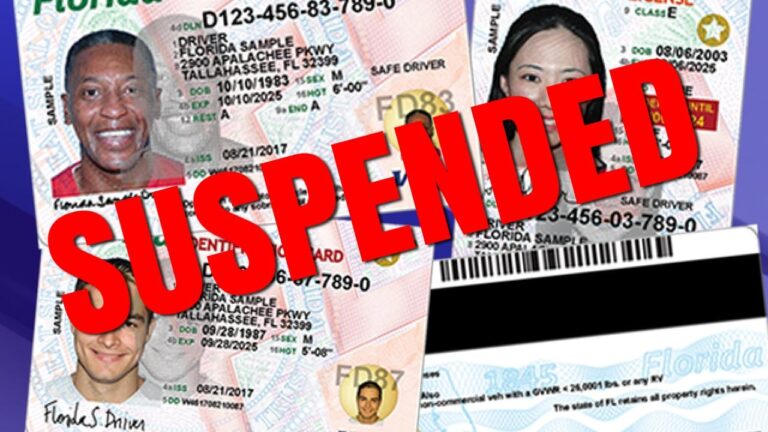City Hall is witnessing growing momentum for reform aimed at ending debt-based license suspensions, a practice critics say unfairly penalizes individuals struggling with financial obligations.Lawmakers and advocates are pushing to change policies that suspend driver’s licenses due to unpaid fines and fees, arguing such measures exacerbate economic hardship and limit access to employment and essential services. The proposed reforms seek to decouple ability to drive from debt enforcement,marking a notable shift in how local governments address financial penalties and public safety.
Table of Contents
- Debt-Based License Suspension Reform Sees Growing Support from Lawmakers
- Impact of License Suspensions on Low-Income Drivers and Public Safety
- Proposed Policy Changes Aim to Separate Debt Collection from Driving Privileges
- Community Leaders Call for Comprehensive Alternatives to Current Suspension Practices
- Closing Remarks
Debt-Based License Suspension Reform Sees Growing Support from Lawmakers
Legislators at city hall are increasingly rallying behind measures that would overhaul the current system of suspending driver’s licenses due to unpaid fines and fees. Critics argue the practice disproportionately impacts low-income residents, compounding financial hardships and limiting access to employment and essential services.New proposals aim to replace suspensions with alternative penalties that focus on payment plans and community service, emphasizing rehabilitation over punishment.
Supporters highlight several key benefits of the reforms, including:
- Reducing recidivism by breaking the cycle of debt and license loss.
- Increasing public safety as more drivers maintain valid licenses and insurance.
- Promoting economic stability by keeping people on the road to work and meet family needs.
With bipartisan backing growing, the city council is expected to debate the legislation in upcoming sessions, marking a critical step toward more equitable and effective debt enforcement practices.
Impact of License Suspensions on Low-Income Drivers and Public Safety
License suspensions tied to unpaid debt disproportionately affect low-income drivers, creating a cycle that worsens financial instability and restricts access to essential services such as work, healthcare, and education. For many in economically disadvantaged communities, losing driving privileges means lost employment opportunities and increased difficulty fulfilling daily responsibilities, pushing families deeper into hardship. This punitive approach often leads to reckless behavior on the road, as those without a valid license may still feel compelled to drive to survive, inadvertently increasing risks to themselves and others.
Public safety is paradoxically undermined by such policies. Rather than deterring unsafe driving, suspensions for non-driving-related offenses can escalate perilous behaviors and overcrowd the criminal justice system with preventable DWLS (Driving While License Suspended) cases. Reform advocates highlight that reinstating driving privileges to those who have cleared their debts or passed appropriate safety checks not only supports economic mobility but also enhances community safety by reducing unlicensed driving incidents and encouraging compliance with the law.
- Economic hardship intensifies without license access
- Increases in unlicensed driving cases strain law enforcement
- Reinstatement reforms promote safer roadways and social equity
Proposed Policy Changes Aim to Separate Debt Collection from Driving Privileges
City lawmakers are advancing reforms that seek to eliminate the practice of suspending driver’s licenses solely due to outstanding debts unrelated to driving violations. The proposed changes are designed to decouple financial obligations from essential driving privileges, aiming to reduce the disproportionate impact on low-income residents. Supporters argue this approach will prevent individuals from being trapped in a cycle where lack of transportation limits job opportunities and the ability to repay debts.
Key elements of the proposal include:
- Prohibiting license suspensions for unpaid fines and fees unrelated to traffic offenses.
- Introducing alternative debt collection methods that do not restrict mobility.
- Implementing more flexible repayment plans and support services for debtors.
This policy shift marks a significant rethinking of punitive debt enforcement,reflecting growing awareness about the social and economic consequences of linking driving privileges with financial obligations.
Community Leaders Call for Comprehensive Alternatives to Current Suspension Practices
Local advocates and civil rights leaders are urging policymakers to move beyond the current punitive framework of suspending driver’s licenses over unpaid debts.They emphasize that these practices disproportionately impact low-income communities, creating a cycle of financial hardship and limited mobility that hinders access to employment, education, and essential services. The coalition is calling for holistic alternatives that address the root causes of non-payment without stripping individuals of their ability to work or commute.
The proposals presented by community leaders include:
- Income-based repayment plans designed to accommodate financial hardship
- Community service options as alternative penalties
- Enhanced notification systems to ensure debtors are fully informed of their rights and options
- Investment in public transportation to reduce dependency on driving
Supporters argue these measures will foster equity and reduce recidivism by prioritizing rehabilitation over punishment.
Closing Remarks
As momentum builds behind debt-based license suspension reform at City Hall, advocates and lawmakers alike emphasize the potential for more equitable and effective policies. By addressing the intersection of financial hardship and driving privileges, the proposed changes aim to alleviate undue burdens on low-income residents while maintaining public safety. As this conversation continues to unfold, stakeholders will be watching closely to see if City Hall can translate reform efforts into tangible results for the community.

